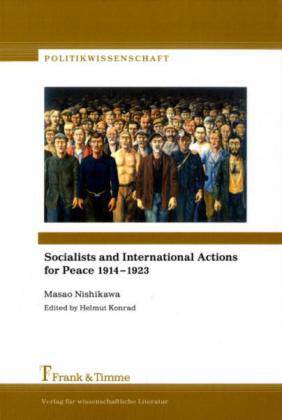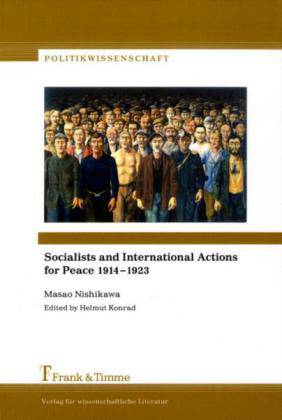
- Afhalen na 1 uur in een winkel met voorraad
- Gratis thuislevering in België vanaf € 30
- Ruim aanbod met 7 miljoen producten
- Afhalen na 1 uur in een winkel met voorraad
- Gratis thuislevering in België vanaf € 30
- Ruim aanbod met 7 miljoen producten
Zoeken
€ 67,45
+ 134 punten
Omschrijving
The analyses and accounts of the history of the "Second International" often go up to 1914, the year its anti-war efforts were to prove futile. All actions of the socialists during World War I were discussed in the context of the pathway to the "Third International." The author aims to present a somewhat different picture from existing views by examining the thoughts and actions of socialists in the years 1914-1923 beyond the framework of whether they supported or opposed the "Third International." He describes what circumstances led to the formation of "communism" and "social democracy," which divided in two the international socialist movement for almost 70 years, paying attention to various issues deeply involved in international and domestic politics as well as in the socialist movement. Masao Nishikawa taught western history at the Tokyo Women's Christian College (1966-1968), the University of Tokyo (1968-1994) and Senshū University (1994-2004). He was visiting professor at Ruhr University Bochum (1976-1977) and Bremen University (1988-1989). Upon retirement he was made professor emeritus at the University of Tokyo. He had a worldwide fame as a specialist of international socialist movements.
Specificaties
Betrokkenen
- Auteur(s):
- Uitgeverij:
Inhoud
- Aantal bladzijden:
- 344
- Taal:
- Engels
- Reeks:
- Reeksnummer:
- nr. 4
Eigenschappen
- Productcode (EAN):
- 9783865962966
- Verschijningsdatum:
- 30/09/2010
- Uitvoering:
- Paperback
- Formaat:
- Trade paperback (VS)
- Afmetingen:
- 148 mm x 210 mm
- Gewicht:
- 412 g

Alleen bij Standaard Boekhandel
+ 134 punten op je klantenkaart van Standaard Boekhandel
Beoordelingen
We publiceren alleen reviews die voldoen aan de voorwaarden voor reviews. Bekijk onze voorwaarden voor reviews.











